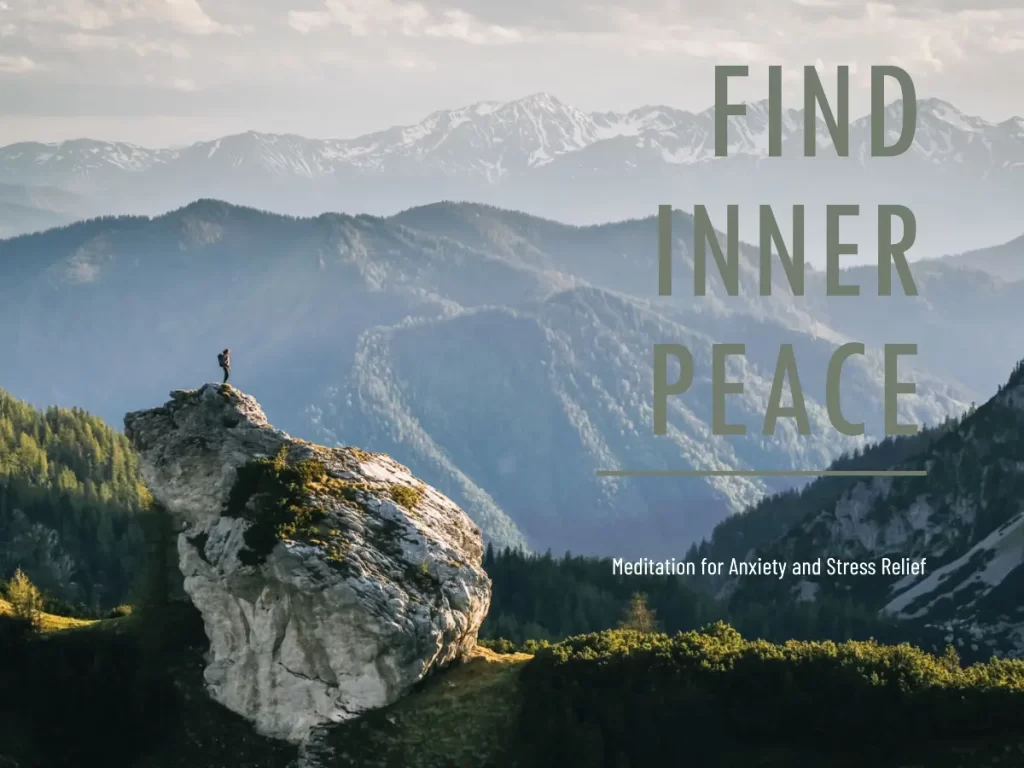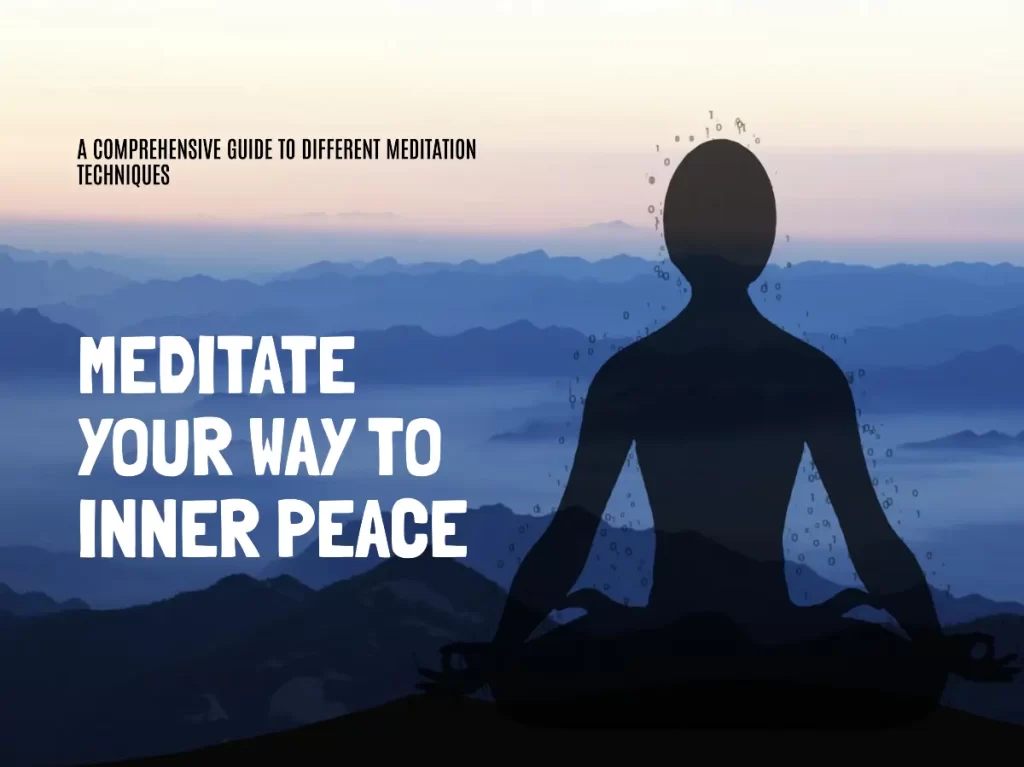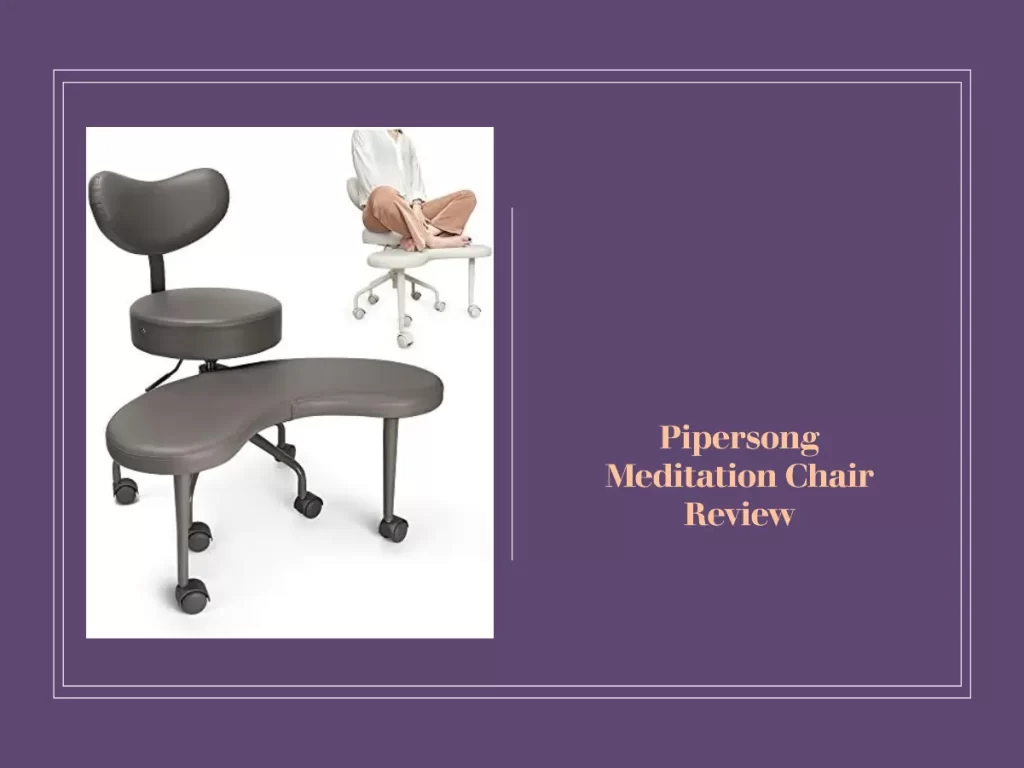How do you feel when handling your responsibilities? There is no doubt that you feel a measure of stress and anxiety. That is totally inevitable and we understand the pressure. Luckily, there is a tool that can help in occasions where you need it the most. That is meditation.
Join us, please, as we consider the plenty of ways to utilize meditation for anxiety and stress relief.
Is Meditation Really Needed for Anxiety and Stress?

Stress is taking over the world. It is even becoming a cause for alarm. According to one survey, 37% of people have experienced anxiety disorders in their lives. Another one shows that 74% are so stressed to the fact that they cannot function well anymore. They cannot even cope with daily activities. Even children are not left out. There is a report that says about 32% of adolescents have anxiety disorders.
Science has made us understand how meditation works for stress and anxiety. It says that when you meditate regularly, it can reduce stress.
A practice of meditation keeps you well. It enhances your emotional being. It will not even be obvious that you are encountering problems. This is because meditation can calm the mind. It does other good things – like sharpening your focus and improving your attention span. Do you need any other reason? You should think of trying meditation for anxiety and stress relief.
Understand the Science behind Mindfulness Meditation for Anxiety and Stress Relief

True, there are certain things we cannot ascertain yet. As a matter of fact, researchers are working tirelessly to give us more information. However, we can work with what we already know. What we do know is meditation is good for the brain. How is that so? Well, thanks to the experts, meditation increases grey matter in certain areas of the brain that is linked with emotions and memory.
Aside from that, we also have the amygdala. This part governs anxiety and stress responses. Researchers have concluded that mindfulness meditation can reduce the activity in this region. This makes it a good practice for those with anxiety disorders.
In all, we can safely say that mindfulness can improve overall health.
Find Calm with Guided Meditation
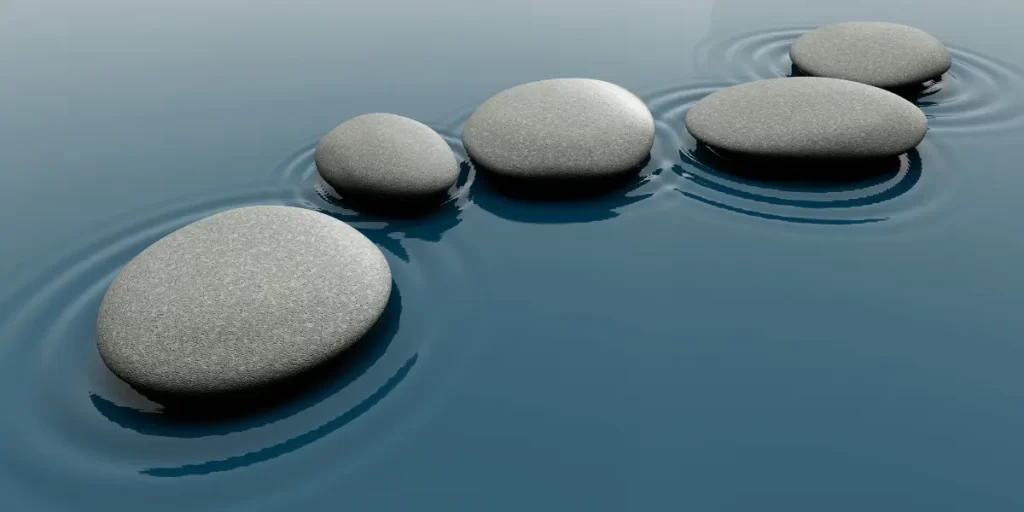
Are you new to meditation? Then guided meditation is what you should put on the table. Guided meditation involves leading yourself through meditation with the help of an experienced practitioner. This experienced person may guide you in person, he may do it online through audio or video recordings. He may even guide you through books. See it as a way of easing yourself into the practice.
There are plenty of reasons why people offer guided meditation. For a start, it is easier to stick to because the meditation sessions are usually short. You also get to pay attention easily. It is better for difficult situations too – in the case of those who have undergone traumatic experiences. It can guide you with reflection. You won’t be left alone with your thoughts. You will have someone taking you through the entire journey. The voice of the other person can relax and release tension especially if the voice is a calm one. It also helps beginners to be consistent with their practice.
Here is a sample of a 10-minute Guided Meditation for Anxiety and Stress Relief transcript:
Breathe in a natural way. Imagine a loved one is sick or suffering. Now imagine a light at your heart connecting you with the heart of that beloved person.
Breathe naturally as the white light connects you to your loved one. Send compassion and love to them saying, “May you be free from your predicament and its causes”
Bask in the gentle light of compassion and repeat this phrase silently: “May I be free from all illnesses, may you also be free” (Say this for about two minutes). Remember, breathing naturally will help the connection continue.
Next, imagine the white light forming a circle around you both. Imagine yourself and your loved one radiating the light onto infinity. Continue breathing and reciting the phrases mentally or silently for two minutes.
Now, enjoy the soft gentle glow of your body. Imagine love and kindness flowing from your heart right into the universe. Now, mentally recite that same phrase in one minute.
Pay attention to your body, notice your bodily sensations, and recognize that awareness and peace without judgment.
Breathe naturally and slowly open your eyes.
There are a few key moments to focus on when doing Guided Meditation.
- Breathing: It should be natural and calm. Learn to stay focused and don’t hesitate to gently return your attention back to it when your mind wanders.
- Body scan: Your bodily sensations should be involved. From the crown of your head to the sole of your foot, every part matters and should be given adequate attention.
- Grounding techniques: This could be visualizing a white light to induce calmness and rejuvenation. Or mindful eating or even movement practices. Whatever technique you choose is fine as long as it suits you and helps you stay grounded.
- Emotional Triggers: We believe every emotion, whether good or bad, is triggered by something. So if you feel an emotion, discern what led to it. Simply observe and let go of emotions that arise.
Consider Mindfulness Meditation for Anxiety and Stress Relief
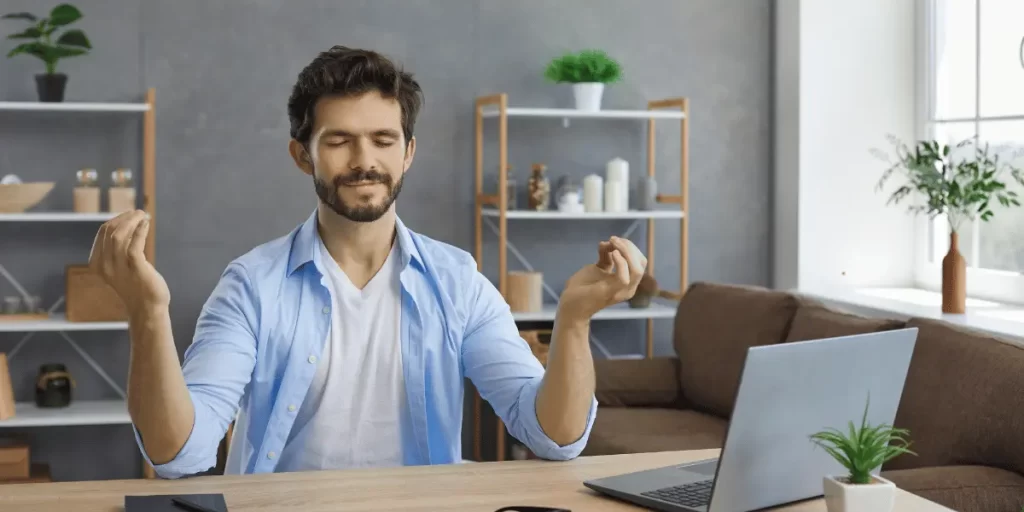
Mindfulness is often confused with meditation but we’ve got you. Mindfulness is that state where you are aware of the present moment without distractions. Let’s see some areas where mindfulness is helpful:
- Rumination reduction: What this simply means is that mindfulness helps in reducing the symptoms of stress and anxiety. Rumination makes you dwell on things that will stress you. For instance, if you have a presentation or an exam, you could be tense while thinking about it. Being mindful can address that issue.
- Acceptance: Negative thoughts, stress, and worry are inevitable. Mindfulness will make you acknowledge that. It will help you not to fight these things when they arise but to observe them without judgment.
- Regulated emotions: Mindfulness practice helps you develop resilience and other skills that will regulate your emotions.
Let’s take a vivid look at some of the techniques to relieve stress and anxiety:
- Mindful breathing: This technique enables you to anchor your attention to the present moment.
- Body scan: Here, your focus is placed on all the parts of your body. Taking note of physical sensations reduces stress and anxiety.
- Mindful walking: This is the same as taking a walk. The only difference is that you walk with intention. Take a moment to notice the things you see around you. Engage your five senses to bring yourself in the present moment.
- Visualization or Guided Imagery: Here, you visualize a calm scene. This technique takes your mind away from stressful situations and replaces it with tranquility.
- Gratitude: Just being thankful and showing thanks for the little things can ease stress. You should start this ASAP if you haven’t already.
- Journaling: When you pen down your thoughts, it can help you calm your mind and body.
- Mantra meditation where you repeat key phrases to de-stress yourself.
Overthinking which the educated call rumination is not good. This habit can drain you of happiness and peace. You can incorporate safe mindful practices to assist you. Here are some of them:
- Five senses exercise: Take note of 5 things you see. Focus too on 5 things you hear and taste. Note 5 things you can smell and 5 things you can feel or touch. Relaxation is bound to happen after this.
- Do deep breathing: Deep or belly breathing brings relief to the body and this works well to eliminate stress.
- A bit of distraction: Doing something that will take your mind away from your anxious thoughts can help. But make sure what you’re doing is engaging and healthy.
- Seeking Therapy: Your final resort to dealing with stress may be seeking a therapist. That’s fine. You can take the mindfulness-based stress reduction (MBSR) programs.
Tip For How To Stop Panic Attacks

When your body is exposed to danger, stress or excitement, it devises a way to respond to it. Sometimes, the response is exaggerated and this leads to panic attacks. Panic attacks cannot always be predicted. They are usually intense and sudden. What does it feel like to experience such a thing?
Panic attacks can lead to physical symptoms like sweating, chest pain and shallow breath. You will feel sick, shaky and dizzy. You could either be extremely hot or extremely cold.
Panic Attack First Aid: Mindful Breathing Exercises
- Breathe naturally and slowly from your belly. Try not to force it, just do it easily.
- Use your nostril to inhale. Use your mouth to exhale.
- Count your breath steadily. You could count from 1 to 5.
- Let your breath out on the count of 5.
- Do this process for about 5 minutes.
During a panic attack, mindful breathing can reduce your stress hormones in the blood. It can also slow down blood pressure and heart rate. It can as well increase physical energy and promote your health and well-being.
Find below a few grounding techniques to anchor yourself in the present moment:
- Engage yourself in physical activity. Walking, swimming, stretching – anything that moves your body can help you ground yourself in the present moment.
- Get yourself some grounding objects. It could be a ball or a smooth stone. Hold this object and feel the texture whenever you’re feeling anxious to anchor yourself in the present moment
- Use your senses to bring things to life. Observe, taste, hear and feel the things around you. There is no better way to ground yourself than that.
Meditation for Specific Anxiety Disorders
Generalized Anxiety Disorder which is GAD is a real mental problem. It is when you become excessively worried about things that happen daily. When you have this condition, sweat, muscle tension and trembling tend to happen. Meditation can help you cope. Yes, it can make you relaxed and reduce negative emotions. You will be able to know what triggers your anxiety and respond to it with positivity.
The social anxiety disorder is another one of a kind. This one happens to people who have extreme fears and insecurities in interacting with others. These kind of people are always careful not to say or do anything embarrassing. Sometimes, they may even discard the idea of going out. They prefer to be isolated. Mindfulness and meditation can help you accept your thoughts rather than fight them. Your could incorporate mindful practices like deep breathing, body scan and sitting meditation.
There are occasions where you experience anxiety and depression at the same time. This is considered comorbidity. The things that lead you into depression can also lead you into anxiety. Meditation can help to reduce the effects. It can help you address the underlying issues while making you feel at peace.
Integrating Meditation into Your Daily Life
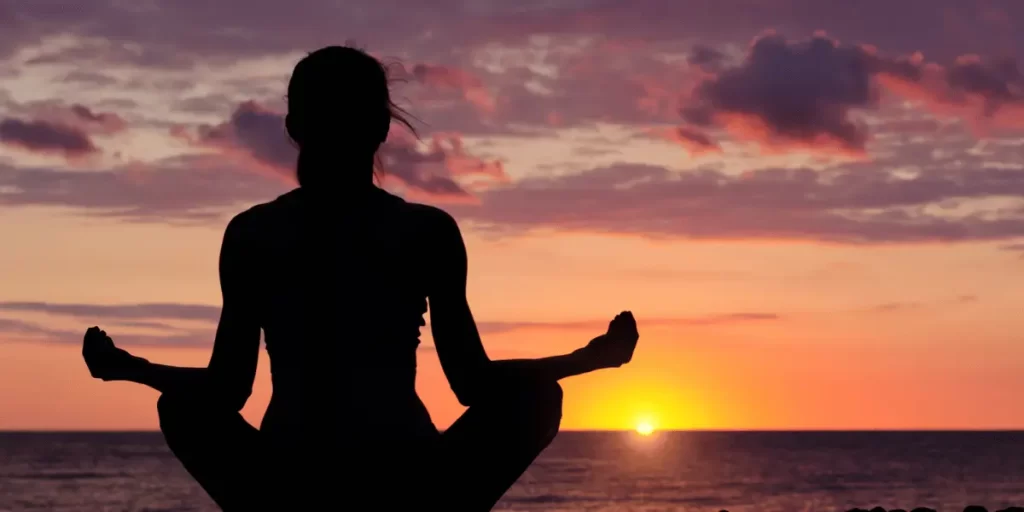
Here’s how to safely establish practice meditation:
- Start small with few minutes a day.
- Find your space and make it comfy
- Try guided meditation using apps or books
- Keep it regular and consistent
- Don’t worry if you’re not seeing immediate results
You can also incorporate meditation into daily routine. How?
- Be mindful when it comes to listening and interacting with others.
- Eat mindfully to get the full taste of your meal
- Take nature walks and enjoy the beauty.
- Mindful breathing is also recommended.
- Journaling, of course, should not be forgotten.
Here are success stories from people who have benefited from meditation.
Holly, mother of 2 says: I have always loved meditation but I didn’t have time for it. When I finally began, I regretted not starting on time. It has really improved my physical and mental health.
Kerry Healy says: Meditation makes me calm and alert. I become aware of my present and focus.
Dr. Chris Patterson says: Meditation has increased my level of clarity and creativity. It has also reduced my stress levels and given me motivation.
Practicing Meditation Is Easy Peasy (sorta)
Although meditation is technical, it is easy, honestly. It is something anyone can do even though you do not know how to. All you need to do is get in a comfortable seated position. Then, just follow your breath. True, you could encounter challenges but don’t let it tear you down. Seek help from experienced ones. Enroll in online courses and participate in group coaching. Constantly practice to help you easily do it.
Resources and Support
Recommended apps: Calm, Headspace, Smiling Mind, Meditopia etc.
Recommended books: Meditation for Beginners, Waking Up, How to Meditate – A Practical Guide to Making Friends with your mind.
Online communities: The Mindful Movement Podcast by Sara and Les Raymond. Here, you can explore meditation written and read by Sara Raymond music.
Local meditation classes and retreats: Baltimore Shambhala Center, Bodhi Meditation.
Meditation for anxiety and stress relief work well for mild cases. If yours is severe, seeking professional help is advised. Until then, do what you can now to ease your mind.
Frequently Asked Questions(FAQ’s)
Deep breaths work like magic. Laughter is also a good medicine. Being active can also help.
Passionflower or valerian root is naturally effective for anxiety.
You can use meditation and exercise. Also, go to sleep on time.
Medications for daily anxiety include things like Valerian, SSRIs and antidepressants.
Exercise and engage yourself in relaxation activities. Be grateful for what you have whether big or small. Get creative and interactive.
Breath awareness and mindfulness work well for anxiety.
Yes, you can. Yoga helps you calm yourself and brings you inner peace.
Experts say that mindfulness can help with anxiety. This is why many people are trying it and they are seeing good results already.
Stress leads to symptoms such as anger and fatigue. Anxiety on the other hand is a persistent worry that occur even when one is not stressed. While they are different, they could occur at the same time.

